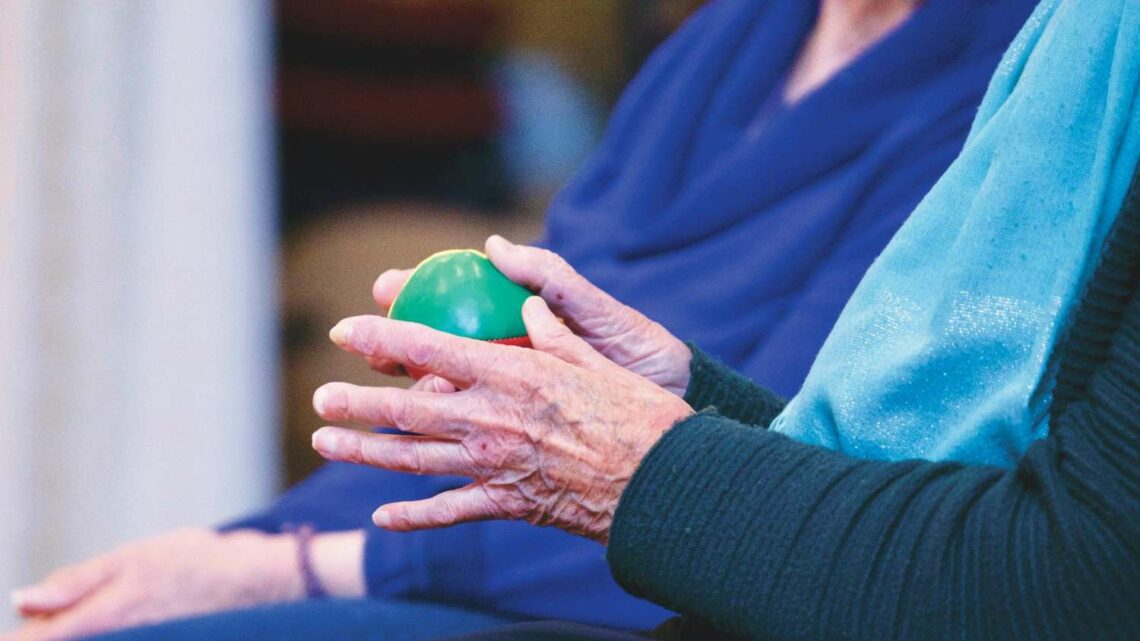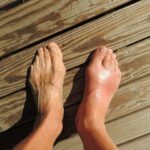If you’ve wondered whether your joint pain or stiffness could be arthritis, you’re not alone. Arthritis affects more than ten million people in the UK and can change how you move, feel, and live each day.
Arthritis pain varies from mild stiffness to severe throbbing and fatigue. Rheumatoid arthritis may cause joints to feel hot and swollen, while osteoarthritis often creates a grinding or creaking sensation. Recognising these symptoms early helps you seek appropriate care.
Key Insights:
- Over ten million people in the UK live with arthritis, which can make routine tasks increasingly difficult.
- Rheumatoid arthritis causes hot, swollen joints with fatigue, while osteoarthritis creates grinding sensations and pain during activity.
- If joint pain or stiffness lasts more than two weeks, speak to your GP to prevent long-term damage.
- Professional care helps maintain independence through medication management, movement support, and assistance with daily tasks.
What is arthritis?
When most people think of arthritis, they imagine stiff, aching joints. Arthritis isn’t just a natural part of ageing; it’s a medical condition that affects people of any age.
The two most common forms are osteoarthritis (the wear-and-tear type) and rheumatoid arthritis (an inflammatory disease). Both cause pain, swelling, and stiffness, but they affect the body differently. Arthritis makes everyday tasks harder, from walking to opening jars. Recognising early signs and knowing when to get help makes a real difference in managing pain and protecting your joints.
Rheumatoid arthritis: inflammation and flare-ups
Rheumatoid arthritis (RA) is an autoimmune condition causing inflammation in the joints and throughout the body. Symptoms often come and go, with flare-ups that can leave you feeling unwell and exhausted.
At the beginning of a flare-up
Symptoms might appear suddenly or build gradually over weeks. Joints, especially in the hands and feet, can feel hot, swollen and throbbing. Pain and stiffness are usually worse in the morning or after resting and may take hours to ease. Because RA affects both sides of the body symmetrically, both wrists, knees, or hands may ache simultaneously.
During a flare-up
You might feel tired, weak, feverish, or as if you’ve been “hit by a bus.” The inflamed joint linings swell, making joints red, warm, and difficult to move. Bending fingers or making a fist can become impossible. Some people also notice dry eyes or chest pain.
If your symptoms last more than two weeks, seek medical advice – early treatment can prevent joint damage.
After a flare-up
When inflammation fades, pain and fatigue often improve. However, repeated flares can damage joints over time, causing deformities or firm swellings called rheumatoid nodules. Managing inflammation early helps protect joint structure and long-term function.
Osteoarthritis: when joints grind and creak
Osteoarthritis (OA) is often called “wear and tear” arthritis. It occurs when cartilage (the smooth cushioning between bones) wears down with age or overuse.
OA causes joint pain, stiffness, and occasional swelling, especially in the knees, hips, and hands. Unlike rheumatoid arthritis, symptoms are usually not symmetrical and don’t make you feel ill overall.
Pain can worsen with activity or weather changes, while morning stiffness usually eases within 30 minutes. The sensation is often described as grinding, creaking, or catching, as rough bone surfaces rub together. Despite its chronic nature, many people live active, fulfilling lives with osteoarthritis through movement, therapy, and pain management.
Clicking, cracking and grinding sounds
Joints can make various noises – cracks, pops, or clicks. Healthy joints can “pop” harmlessly due to gas bubbles or ligament movement. But in arthritis, grinding or creaking sounds (called crepitus) happen because joint surfaces become uneven.
Although unsettling, these sounds don’t always mean worsening damage. However, if you have pain, swelling or stiffness along with the noise, speak to your GP.
Numbness and nerve irritation
Sometimes arthritis can pinch nearby nerves, leading to numbness, tingling or weakness. For example, neck arthritis can irritate nerves, causing arm pain or numbness, while back problems can lead to leg or buttock pain.
These symptoms can be mistaken for other conditions, so it’s worth getting checked by a doctor or physiotherapist.
When to see a doctor
You should speak to a healthcare professional if:
- Pain or stiffness lasts more than two weeks
- Joints are swollen, red, or hot
- You feel unusually tired or feverish
- Everyday activities (like walking, dressing, or gripping) are becoming difficult.
Early diagnosis and treatment can slow progression and preserve mobility.
Living with arthritis
Living with chronic pain can be exhausting – physically and emotionally. But you don’t have to face it alone. Medication, movement, therapy, and lifestyle adjustments can all help you stay mobile and independent.
If you’re caring for someone with arthritis, staying patient and supportive is key. Pain affects mood and motivation, and encouragement makes a difference.
At Hometouch, our live-in carers are carefully vetted and trained to support people with long-term conditions like arthritis. We handle contracts, payments, and cover for holidays or illness, so families can focus on what matters most: comfort and quality of life.





